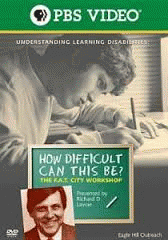Question: When supporting someone who has a difficulty (such as a disability or a phobia), at what point should one help this person get used to the trigger versus make accommodations?
At the outset of our meetup, we determined that this question is not on its surface philosophical. It does suggest a moral dilemma. The deeper question it reveals is whether it is immoral for us to expect a person to change to adhere to our expectations.
A distinction exists between a disability and a phobia. Whereas a disability may include phobias, one who has a phobia or even several phobias may not necessarily be disabled though they may be debilitated by them. Disabilities too, we recognized can encompass mental, physical or both aspects of a person’s being. They may be obvious or invisible.
One person suggested, “Someone once said that a person will only change when the pain of staying the same exceeds the pain of changing.” This principle can be applied to all sorts of change.
Can we even compare phobias like the fear of flying in an airplane, arachnophobia (fear of spiders), or fear of heights with varying challenges presented by learning disabilities, autism, cerebral palsy, PTSD, loss of a limb, or traumatic brain injury? In short, these are not comparable. Answers to how to properly address each condition can vary by the individual. Approaches to treatment are often best begun by professional experts in their field of medical, occupational or physical therapy or psychology.
There are other questions here too. Is it better for us to set a higher achievement goal for the individual in hopes it will inspire him or her to grow, to heal or to be “more than” they were before? By contrast, is it best to make an accommodation that allows the person to participate as fully as possible in the human experience given the set of skills they bring to the table without expecting more?
And, by “more” do we mean “more like us”?
Maybe, Limitless: Upgrade Your Brain, Learn Anything Faster, and Unlock Your Exceptional Life by Jim Kwik offers some answers.
One participant used the example of her work at a summer camp for special needs adults. There, she noticed at meal times some who she believed could have been capable to pour a drink for themselves from a pitcher on the table but that they didn’t simply because they had not been given the opportunity to try, thus they did not strive for more.

To that end, another participant suggested a Richard Lavoie workshop entitled Understanding learning disabilities: [frustration, anxiety, tension, the F.A.T. city workshop] How difficult can this be? would offer some insight. (*Available on DVD by requesting an Interlibrary Loan at our Reference Desk.)
By listening to one another at the Socrates Café, we gain valuable insight into our beliefs and how our answer to this question influence our decisions. The Socratic method allows us to see possibilities beyond our usual scope because we meet people who we might otherwise not have.
At each meetup, participants have an opportunity to hear other points of view, and to offer their ideas about the group’s chosen question of the day. We hope you’ll JOIN US!

